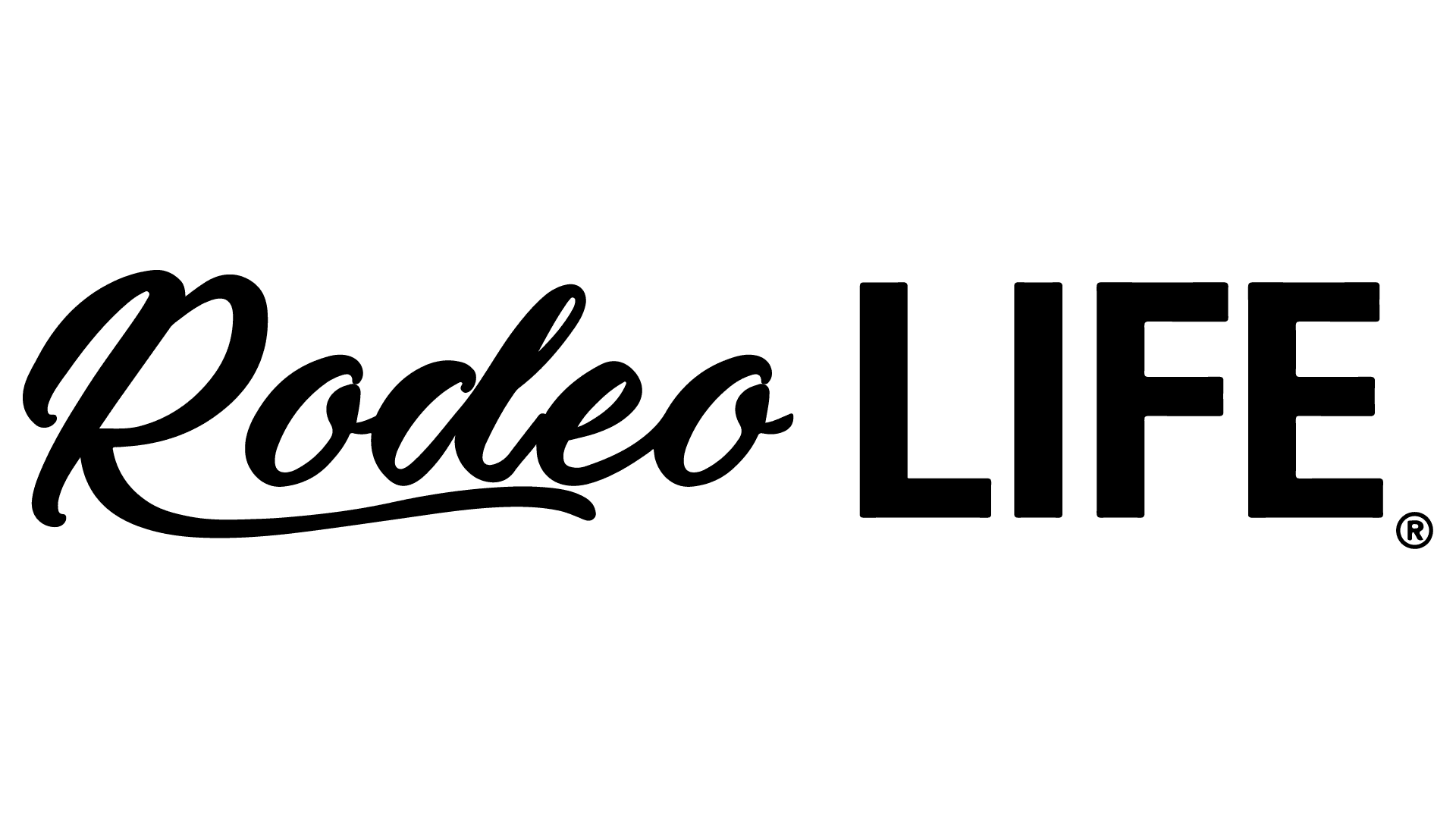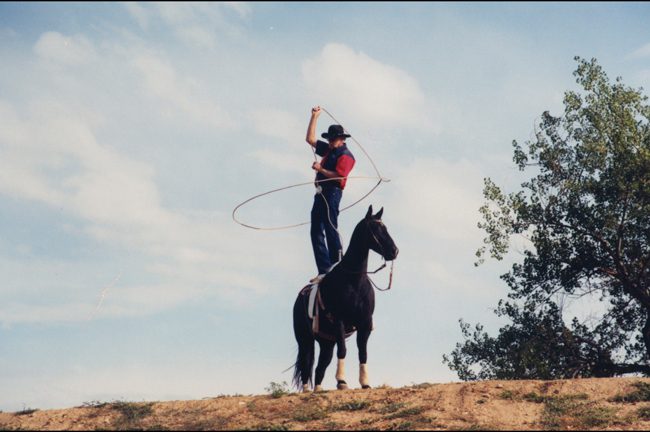Trick roper, trader, entrepreneur, Willis Hamm was born near the second half of The Great Depression, yet hard work and ingenuity were spurs on the heels of the somber era. With them, Willis started his own business, Cowboy Metal, which celebrates its 50th anniversary this year, grown on the values of the western lifestyle – and $187.11.
Born November 5, 1934, to Henry and Esther Hamm, Willis was the youngest of four children. His father was a horse and dairy cow trader, and owned a dairy farm near Hooker, Okla., a town in the 34 mile wide Oklahoma panhandle. Willis was at once initiated into a lifestyle of rising when the day was just four hours old – or at least arriving home in time for milking. “Leland Friesen was my best friend in high school, and we’d ride after church into the night – my dad just said to be home by milking,” Willis recalls. “He never let me use the truck, saying I had a saddle and a horse. He had an extremely good reputation as a trader for his integrity and honesty, and he taught me all of that. We learned how to work and to be honest, and that’s still very important to me today.”
Willis and his brother took to breaking horses, both for their dad and the public. “I was trick riding then and teaching our horses,” says Willis. “My dad would have me show somebody the tricks a horse could do, and it was sold. It was key to my dad’s trading, but it was a heartbreaker for me to say goodbye. I really learned how to detach myself from an animal until I got my own horse, Lady.” The mare lived to be 34, and became Willis’s trick riding mount after he met Dixie Lee and Virginia Mae Reger of Woodard, Okla. “I saw them trick ride at a rodeo in Guymon, Oklahoma, and I fell in love with it,” Willis recalls. “I went home and started doing the tricks I’d seen. I didn’t have a trick saddle at the time, but I messed up my dad’s favorite saddle standing on it. The death drag was one of my favorites – it’s daring and spectacular.”
Never one prone to thumb twiddling, Willis added trick roping to his repertoire in grade school. The three Gilbert brothers from his school were from a ranching family, and they shared their knowledge of trick roping with him. “They were real cowboys, and also my heroes from the standpoint of trick roping,” he says. “I learned to do whip work on my own, and riding standing up while spinning a rope was something I specialized in.” He also experimented with roman riding, known for taking any two horses his family had and making them go forward. “Frank Gilbert could roman ride two horses jumping over a convertible, and I asked my dad about using a neighbors junk car to jump, but he said no, so I made some jumping standards and put a blanket in between to create the same distance. I also trained one of my dad’s horses, Dolly, for trick riding. She loved to fall, and I learned to fall free of her. I’d take her to one of our plowed fields and take her down at a gallop, just like in the movies.”
Willis took his talent from the cow pasture that was his practice pen to rodeos in Kansas and Oklahoma. He grew up just 30 miles from the late legendary rodeo clown and competitor, Buddy Heaton, who eventually left the RCA to create his own rodeo circuit. It was there Willis found his lifelong love of mules and buffalo. “Buddy was my hero, and he did the unusual,” says Willis. “He bucked mules and buffalo as his roughstock. I clowned his buffalo rodeos and did some trick riding and whip work for him for several years.”
Change came when Willis quit school and refused to return for his senior year. “I didn’t get along with my teacher, and he said I was unteachable. My sister had gone to Meade Bible Academy two years before, and my parents asked if I’d go there. I told them only if my best friend, Leland Friesen, came along. He didn’t have a father and his family was very poor, and to this day I’m fairly sure my parents made it possible for him to go that school.” It was there Willis met his future wife, JoAnn Friesen (no relation to Leland), and they were married on December 29, 1953, when Willis was 19, fitting the wedding between milking chores.
The newlyweds moved to Denver, where Willis worked for two and a half years at a Presbyterian hospital as an alternative to the draft for the Korean War. To supplement his income, he mowed lawns, delivered The Denver Post, and drove horses for Glacier Barns’ hayrides several hours a night. In 1960, he started working for a company that built doorframes, but boredom struck, and Willis decided to make good on his pledge to be a trader like his dad. “I’d saved up $187.11, and I wanted to see what I could do with it,” he says. “The first thing I did was buy a machine I didn’t know anything about, which turned out to be worthless. I knew a guy in the machine tool business, so I told him my story and we traded for a little punch press. I started making things like ornamental leaves for fences for three cents apiece, and then a friend of mine in the ceiling business needed ceiling clips, which I built by the thousands.”
By 1968, Willis had three employees, unbeknownst to his own employer, whom he was still working for. “I went into my boss two years after I started Cowboy Metal and told him what I was doing,” says Willis. “I thought he’d either fire me or tell me to get rid of it, but he only asked if I was man enough to run two companies, and I worked for him another two years.” In 1970, Willis had saved $2,000 cash to quit his doorframe job and begin working full time at Cowboy Metal, but the day he resigned, he went out to lunch with his billfold and came home without it. It was found and returned with everything but the $2,000. “That’s the money we were going to live on for a while, but the man I’d sold ceiling clips to advanced me some money, and it didn’t take me long to pay it back. I’m a risk taker and a pretty good manager, and I ended up fulfilling my wish of being a trader.”
Willis went on to buy and sell everything from wagons and buggies, to horses, mules, and harnesses, staying just ahead of the curve of what was trending for 25 years. He sold harnesses internationally to Germany, Japan, and South America, while Cowboy Metal expanded its services to building horse trailers. Today, the custom metal fabrication shop, still located in Denver, specializes in press brake, shear, and welding services, along with repairing many types of trailers and selling trailer parts.
While his business grew, so did Willis’s family. He and JoAnn have two children, Verle Hamm and Melody Brandt, along with four grandchildren – Verle and Dawn’s daughters, Alyssa and Randi, and Melody and Bruce’s sons, Jason and Lance – and five great-grandchildren. “I’m honored to have him as my dad and experience the things we have together,” says Verle. He competed in the NLBRA in bareback and bull riding, and was the CSHSRA bull riding champion in 1974, along with the all-around reserve champion. Today, he competes in the Cowboy Mounted Shooting Association (CMSA). He and Melody work at Cowboy Metal, while Willis ushered all of the grandchildren into the Denver National Western Stock Show, which he competed in with both horses and mules. “There’s been a second-class attitude about the mule industry, but at Cowboy Metal we always tried to raise the bar and be creative,” says Willis, who won every class at the Stock Show during his 30 years as a competitor.
Yet the creativity didn’t end there. In 1969, Willis had purchased a piece of property in Louisville, Colo., between Boulder and Denver, naming it Cowboy Meadows Farm, a division of Cowboy Metal. Complete with Western buildings, teepees, and stagecoaches, the farm hosted weddings, YMCA summer camps, company picnics, and other special events, until it was sold in 2010. Willis and Verle also drove rodeo dignitaries in their stagecoach for 18 years in the Greeley Stampede, including Leon Coffee and Bill Farr.
“It was fun growing up and having a dad who was a cowboy,” says Melody, “and all the fun we had at the National Western Stock Show will never be forgotten. He taught us a lot of things, and growing up with him as a dad was never dull. His faith and love of God and family is a wonderful heritage.” Today, Willis and JoAnn make their home in Lakewood, Colo., near Denver, where his garage is home to numerous mechanical dummies he creates and engineers to talk and make facial expressions. Though he sold his 14 buffalo – one of which, Harry, now hangs in Willis’s office – Willis still works with his mules. He sold two pairs of mules to a wrangler for the 2013 adaptation of The Lone Ranger, and his inventiveness also produced Little Spike in 2005, a train engine with ten passenger cars he and Verle take to special events such as Buffalo Bill Days in Golden, Colo., country clubs, farmers markets, parades, and Lakewood Cider Days. They have also taken their special events to Nashville, Tenn., Wichita and Liberal, Kan., Guymon, Okla., Tacoma, Wash., Las Vegas, Nev., Greeley, and The Broadmoor in Colorado Springs, Colo., while also making appearances in and providing props for TV commercials.
“Life has been good, and I’m grateful for the talent and opportunities God has given me,” Willis concludes. “To quote my hero, Will Rogers, it takes a life to make a living, and it takes a lifetime to make a reputation.”
Back When They Bucked with Willis Hamm
39
previous post









